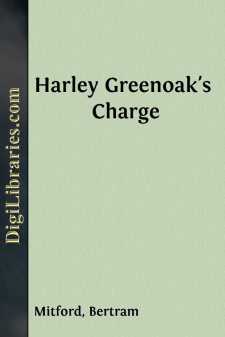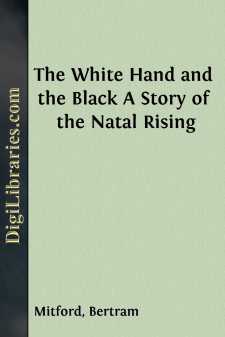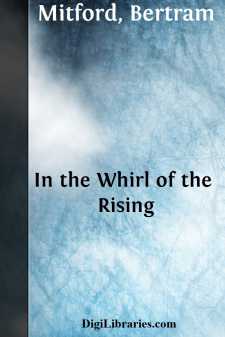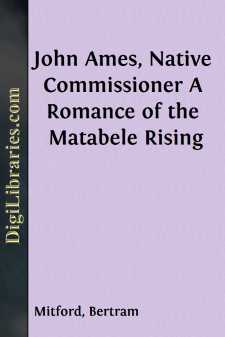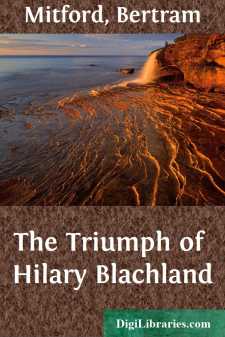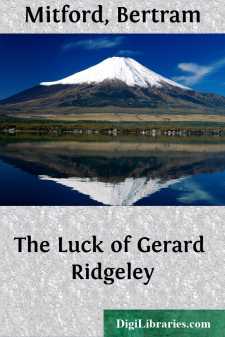Categories
- Antiques & Collectibles 13
- Architecture 36
- Art 48
- Bibles 22
- Biography & Autobiography 813
- Body, Mind & Spirit 142
- Business & Economics 28
- Children's Books 13
- Children's Fiction 10
- Computers 4
- Cooking 94
- Crafts & Hobbies 4
- Drama 346
- Education 46
- Family & Relationships 57
- Fiction 11828
- Games 19
- Gardening 17
- Health & Fitness 34
- History 1377
- House & Home 1
- Humor 147
- Juvenile Fiction 1873
- Juvenile Nonfiction 202
- Language Arts & Disciplines 88
- Law 16
- Literary Collections 686
- Literary Criticism 179
- Mathematics 13
- Medical 41
- Music 40
- Nature 179
- Non-Classifiable 1768
- Performing Arts 7
- Periodicals 1453
- Philosophy 64
- Photography 2
- Poetry 896
- Political Science 203
- Psychology 42
- Reference 154
- Religion 513
- Science 126
- Self-Help 84
- Social Science 81
- Sports & Recreation 34
- Study Aids 3
- Technology & Engineering 59
- Transportation 23
- Travel 463
- True Crime 29
Bertram Mitford
Bertram Mitford (1855-1914) was an English author known for his adventure novels set in Southern Africa. He is particularly noted for his vivid depictions of the Anglo-Zulu War and Zulu culture, drawing on his own travels and experiences in the region. Mitford's works, such as "The Gun-Runner" and "The King's Assegai," blend historical events with imaginative storytelling, offering a fascinating glimpse into colonial Africa.
Author's Books:
Sort by:
by:
Bertram Mitford
Chapter One. The Opening of the Compact. “You will look after him, won’t you?” “Certainly. You can rely upon me absolutely.” Thus two men on the deck of a ship. One was silver-haired, elderly, spare and very refined looking. The other, of medium height, broadly built, and middle-aged, was, in his way, of striking appearance. His strong face, lined and sun-tanned, was half hidden in a full,...
more...
by:
Bertram Mitford
Prologue. A weight had fallen from him—the weight of a lifetime; the galling, hopeless, demoralising weight which had paralysed his energies, sterilised his brain, and, in the case of a subject less clear-sighted, would have brought him down to drink or suicide, possibly both. And now it had fallen from him. The man on the mountain top looked around, and as he did so, something of buoyancy that he...
more...
by:
Bertram Mitford
Prologue. “You were astonished when I refused your piece of gold, Nkose. But were you to offer me your waggon loaded up with just such shining gold pieces, even that would not coax this broad spear out of my possession.” (Nkose: literally “chief”—a title of civility which the innate courtesy of the Zulu moves him to bestow upon the stranger. In this connection it corresponds to “sir.”)...
more...
by:
Bertram Mitford
Prologue. “You coward!” The word cut crisply and sharp through the clear frosty air, lashing and keen as the wind that stirred the crystal-spangled pines, and the musical ring of skate-blades upon the ice-bound surface of the mere. She who uttered it stood, her flower-like face and deep blue eyes all a-quiver with contemptuous disgust. He to whom it was addressed, started, blenched ever so...
more...
by:
Bertram Mitford
Chapter One. Madúla’s Cattle. Madúla’s kraal, in the Sikumbutana, was in a state of quite unusual excitement. The kraal, a large one, surrounded by an oval ring-fence of thorn, contained some seventy or eighty huts. Three or four smaller kraals were dotted around within a mile of it, and the whole lay in a wide, open basin sparsely grown with mimosa and low scrub, shut in by round-topped...
more...
by:
Bertram Mitford
The Camp on the Matya’mhlope. “There! That is Umzilikazi’s grave,” said Christian Sybrandt, pointing out a towering pile of rocks some little way off, across the valley. “Is it? Let’s go and have a look at it then,” was the prompt reply. But immediately upon having made it, the second speaker knew that he had spoken like a fool, for the first gave a short laugh. “Go over and have a look...
more...
by:
Bertram Mitford
Chapter One. The New Boy. “Hi! Blacky! Here—hold hard. D’you hear, Snowball?” The last peremptorily. He thus addressed, paused, turned, and eyed somewhat doubtfully, not without a tinge of apprehension, the group of boys who thus hailed him. “What’s your name?” pursued the latter, “Caesar, Pompey, Snowball—what?” “Or Uncle Tom?” came another suggestion. “I—new boy,” was...
more...
by:
Bertram Mitford
Prologue. We were talking about Rorke’s Drift and of Kambúla, in the battles fought at which places these two warriors had borne arms. They were fine, tall, martial-looking Zulus, and both head-ringed. They carried small shields, and a perfect arsenal of assegais—beautifully-made weapons for the most part. With none of these, however, could they be induced to part. “What should you white people...
more...
by:
Bertram Mitford
Crossing the Durban Bar. The steamship Amatikulu was drawing near the end of her voyage. A fresh breeze was ploughing up the blue waves of the Indian Ocean, hurling off their crests in white, foamy masses, casting showers of salt spray upon the wet decks of the vessel as she plunged her nose into each heaving, tossing billow, and leaped up again with a sudden jerk which was more than lively, and...
more...
by:
Bertram Mitford
"SWEET HOME!" She was talking at him. This was a thing she frequently did, and she had two ways of doing it. One was to talk at him through a third party when they two were not alone together; the other to convey moralizings and innuendo for his edification when they were—as in the present case. Just now she was extolling the superabundant virtues of somebody else's husband, with a tone...
more...


